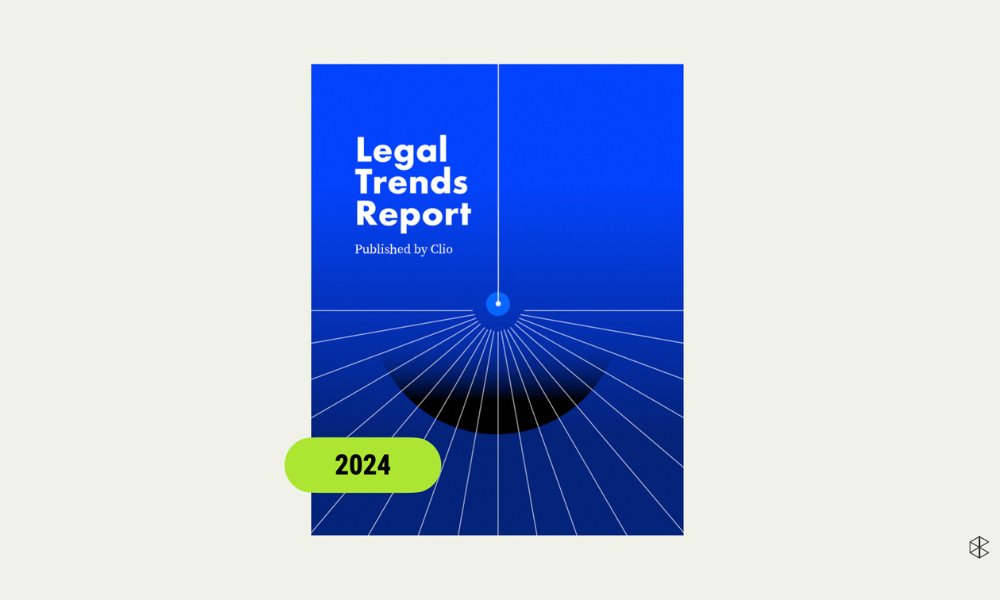
AI usage in law firms jumped to 79% from 19% in 2023, research reveals

Clio, a provider of cloud-based legal technology, has released the ninth edition of its Legal Trends Report, which gives insights into legal industry trends in practice management, client expectations, technology adoption, and more.
This year’s report offers analyses of AI adoption within the industry, the rising use of flat fees, law firms’ spending priorities relating to technology and marketing efforts, and their responsiveness to potential clients.
The report revealed that the adoption of AI-powered tools in the daily work of law firms has surged to 79% from 19% in just a year, with 70% of clients preferring or responding neutrally toward firms utilising AI.
Clio’s analysis showed that AI could automate up to 74% of hourly billable work like information gathering and data analysis. Specifically, it could automate 57% of lawyers’ tasks and 81% of legal secretaries’ and administrative assistants’ tasks.
With AI reducing the time spent on billable tasks, law firms may experience declining revenues if they keep relying on hourly billing, the report said. Firms may potentially preserve profitability if they instead favour more flexible options like flat fees, the report suggested.
“AI has reached the level of adoption the cloud took a decade to obtain, with 79% of lawyers now using AI daily,” said Jack Newton, Clio’s chief executive officer and founder. “This increased efficiency is pushing firms to adopt more flexible billing options, like flat fees, that better align with the value they deliver.”
The Legal Trends Report noted that hourly billing remains predominant among law firms, which are charging 34% more of their cases on a flat-fee basis compared with 2016. Firms are boosting tech spending by 20% annually, while solo practitioners are increasing tech spending by 56%, the report said.
The report showed that clients have been driving a shift towards flat fees, with 71% favouring such fees for their entire case and 51% preferring such fees for individual activities.
Law firms adopting flat fees can benefit from quicker billing cycles and faster payment collection, can improve cash flow and service delivery, and can position themselves as being capable of handling more cases efficiently, the report suggested.
The report covered the findings of a 2024 secret shopper study, which revealed that more than half of law firms contacted ignored client inquiries. This presented an opportunity for better client engagement, the report suggested.
“Clients today expect timely responses and clear communication from their law firms, and those firms that prioritize this are seeing outsized gains in both new clients and revenue,” said Joshua Lenon, Clio’s lawyer-in-residence.
Of 500 law firms emailed, 33% responded to emails, which went down from 40% in a 2019 study. Of the firms contacted, 84% responded within eight hours, 18% gave clear next steps or cost information, and 2% referenced similar legal cases upon request, the study found.
Of law firms fielding phone inquiries, 40% answered calls, down from 56% in 2019. In total, 48% of firms were essentially unreachable by phone, the study found. Of the firms contacted, 41% offered rate information, 36% explained the legal process or the next steps, and 12% gave cost estimates.
Among law firm websites surveyed, 30% provided clear guidance on the hiring process, while 14% displayed pricing information, the study found.
The results showed that firms focusing on improving their client onboarding experience, including by adding online client intake tools, have 50% more incoming potential clients and earn 50% more revenue on average.
The results also revealed that 51% of clients found chatbots useful for exploring legal options, while 67% still preferred being able to communicate with a human when necessary.
Clio’s research drew on data from thousands of legal professionals across North America.
In Australia, Clio works for practice areas including bankruptcy and insolvency, competition and consumer matters, conveyancing, commercial and corporate law, criminal law, employment law, family law, intellectual property law, immigration law, civil and commercial litigation, personal injury law, property law, and wills and estates.
Those interested can learn more here.